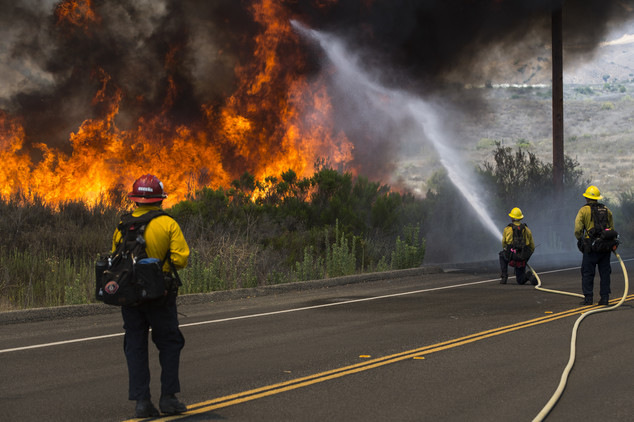The Paradise Camp Fire is the deadliest wildfire in California history. Why is that?
To date 79 people have died and almost 700 are still missing as the fire still rages on. Here in Silicon Valley, we’re processing the tragic devastation and choking in a blanket of smoke and misleading statements from our president, who blames forest mismanagement for the tragedy. Head of the California Professional Firefighters organization called the president’s claim “inane, ill-informed, ill-timed and demeaning to victims and to our firefighters on the front lines.”
I was invited to share my perspective on the BBC World Service and it felt good to call a lie a lie. NPR has explained its policy of not calling out Trump’s lies. I think it’s a complete cop out and agree with the listener who wrote: “To fail to identify a lie as a lie is a gross failure of journalism.”
“Donald Trump’s tweet at the weekend said, “There’s no reason for these massive fires…except forest management.” It’s over-simplification and it’s a downright lie. His aim is to distract and undermine the widely accepted role of climate change in these mega fires…the big picture is: climate change is causing longer droughts, hotter air, drier soil, faster winds and is creating these mega fires. So, thinning the forest is one thing, but the longer term thing is: we need to do more for climate change. We need to reduce our carbon footprint, and we need to encourage more clean energy.” Alison van Diggelen
Photo credit: Cpl. Dylan Chagnon, U.S. Marine Corps.
The BBC’s Fergus Nicoll is co-host of the program, Business Matters.
Listen to the BBC Podcast (segment starts @8:20)
Here’s a transcript of our conversation (edited for length and clarity):
Fergus Nicoll: You’d think you were at a safe distance, Alison, but I guess there’s got to be knock-on effects weather-wise, smoke-wise, almost across the whole state?
Alison van Diggelen: It feels like California is on fire. Paradise (the town at the epicenter of the fire) is an ironic metaphor for California. The state is paradise for many but is rapidly becoming a hellish inferno. I’m 200 miles south-west of the Camp Fire and the air quality is terrible. We’re being advised to stay indoors and not exercise outside. It’s affecting almost every person in the Golden State.
Fergus Nicoll: Governor Jerry Brown said over the weekend, “Managing all the forests everywhere doesn’t stop climate change. Those that deny climate change are contributing to the tragedy.” He said, “The chickens are coming home to roost.” Is that what everybody’s talking about behind these headlines?
Alison van Diggelen: Absolutely. Donald Trump’s tweet at the weekend said, “There’s no reason for these massive fires…except forest management.” It’s over-simplification and it’s a downright lie. His aim is to distract and undermine the widely accepted role of climate change in these mega fires. There is a short-term solution in mitigation: doing some controlled thinning of forests and relaxing the logging rules, which the state law makers have done this summer. But the big picture is: climate change is causing longer droughts, hotter air, drier soil, faster winds and is creating these mega fires. So, thinning the forest is one thing, but the longer term thing is: we need to do more for climate change. We need to reduce our carbon footprint, and we need to encourage more clean energy.
Fergus Nicoll: I know these are issues you talk about on Fresh Dialogues. What about water? What about the shortages that California has had? Is it a problem fighting fire because there’s insufficient water?
Alison van Diggelen: That again is Donald Trump’s oversimplifications and a distraction. Water shortages (for fire fighting) aren’t a problem. Oroville Dam is very close to where the Camp Fire is burning and in Malibu, you’re right next to the ocean. So there’s really no issue about water shortages for putting out the fires. That is not the issue. Again it’s distracting…it’s point over there when we should be addressing the real issue of climate change.
And one other issue that a lot of people don’t know about is that nights in California have warmed nearly three times as fast as days during the fire season, so lower night time humidity means that the fires are growing and blazing overnight. That didn’t used to happen. So again, the finger points to climate change.
Fergus Nicoll: Alison, thanks for that. This is Business Matters, we’re live on the BBC.
Find out more about the California fires and climate change at the New Yorker and the Weather Network
Latest news updates on the wildfires at KQED




